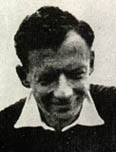

EDWARD BENJAMIN BRITTEN
22thNovember 1913 --- 4thDecember 1976
Copyright 1994-1998 Encyclopaedia Britannica
Last Updated on 2017
By Steven Ritchie
And now for the Music

Thanks go to Ramon Pajares Box for the music below.
(1858)"The Young Person's Guide to the Orchestra, Opus.34". Sequenced by Ramon Pajares Box (1453)"4 Sea Interludes from Peter Grimes, Opus.33a". Sequenced by Dr David Siu (1454)"4 Sea Interludes from Peter Grimes, Opus. 33a". Sequenced by Dr David Siu (1456)"The Young Persons Guide To The Orchestra, Opus.34". Sequenced by A.Given (625)"A Ceremony of Carols, Opus.28, No.7 Interlude". Sequenced by Richard Summers (626)"Hymn to Saint Cecilia, Opus 27, Part 1". Sequenced by Dr David Siu (627)"Hymn to Saint Cecilia, Opus 27, Part 2". Sequenced by Dr David Siu (32a)"Hymn to Saint Cecila Opus.27 Part 3". Sequenced by David Siu (503)"Wolcum Yol, from Ceremony of Carols,(Info by Carl Stenger)". Sequenced by Don Robinson

If you done any Classical pieces of say for example, Delius, mozart, and so on etc,
please email them to the classical music site with details to
"classical (@) ntlworld.com" written this way to stop spammers
just remove spaces and brackets for email address, thank you.

Visitors to this page --

Back to Classical Midi Main Menu click "HERE"